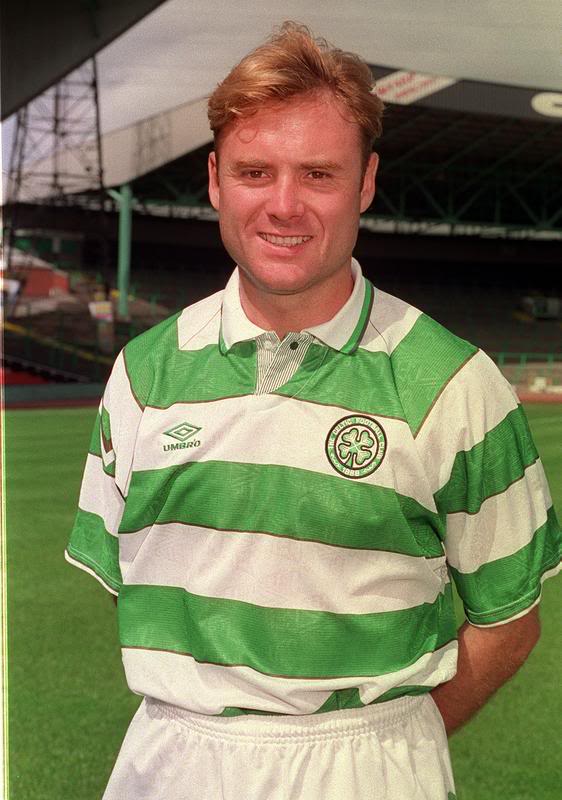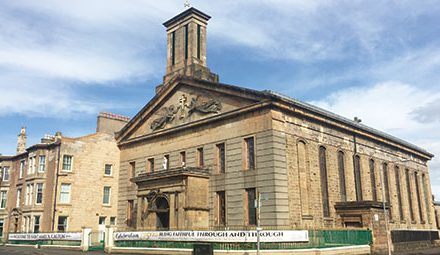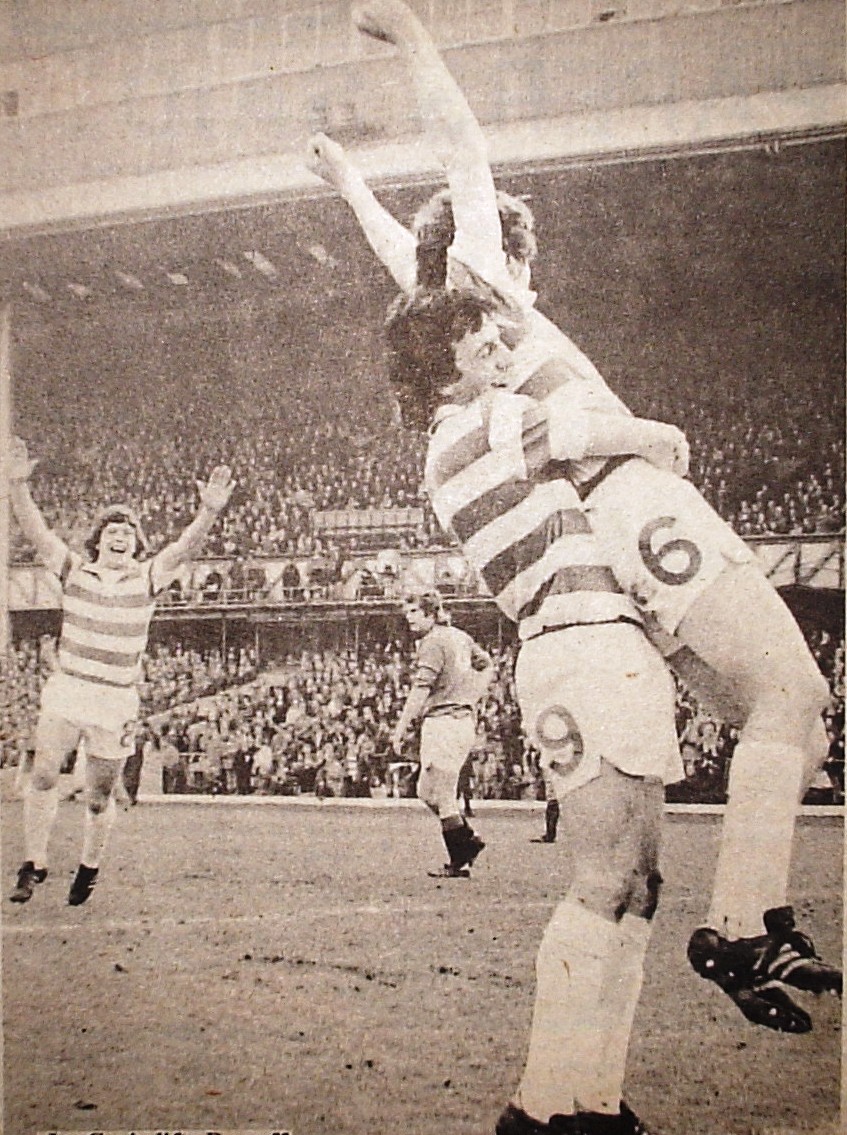In season 1987-88, Dundee striker, Tommy Coyne, was the top goal scorer in the Scottish Premier League with 37 goals. He had formed a brilliant partnership at Dens Park with Keith Wright and by March 1989 Dundee were ready to cash in on their prized asset as Celtic moved in to sign him for a £500,000 fee.
Celtic’s main striker of the period, Frank McAvennie, was a huge favourite with the supporters but he was in dispute with the club and within days of Coyne’s arrival, McAvennie had moved to West Ham for a club record incoming fee of £1,250,000. Although Tommy was not signed as a direct replacement for McAvennie there was a perception amongst the fans that he was. In view of this there was undue pressure put upon on him and it took him some time to settle at Parkhead.
The start of the 1989-90 season saw Celtic and Tommy start well. In the opening league game at Tynecastle he scored a splendid hat trick in a 3-1 win against Hearts and for a time all was well. Celtic’s form was fine until early November when they lost at Ibrox and no one could have foresaw the league collapse that took place as they ended up a poor fifth place in the league with no European qualification.
The Scottish Cup was the saving grace and Tommy had the pleasure of scoring the winning goal against Rangers in the fourth round when Celtic overcame Rangers 1-0 at Parkhead in a game that is still remembered fondly to this day. He also scored in the 3-0 quarter final win against Dunfermline as Celtic paved a way to the final but there was to be no happy ending. Aberdeen beat Celtic 9-8 on penalties after a dull 0-0 draw had been played out. Tommy had the privilege of scoring one of the penalties in the shootout but sadly that wasn’t enough.
By September 1990 Tommy had lost his place in the first team squad and he reached the nadir of his Celtic career when he was named as a substitute for the reserves against Rangers at Celtic Park. However, by early November, he had found redemption. After another run of poor form, manager Billy McNeill recalled Coyne to the attack for a game against Motherwell and Tommy repaid him with two excellent goals in a 2-1 win. After that he went on a superb run of form that saw him finish as top league scorer with 18 goals, a magnificent total considering he only started scoring in November.
In January 1991 with Celtic struggling badly, the team produced a major surprise by beating Aberdeen at Parkhead. The winning goal came in the last minute when Paul Elliott headed against the post and Tommy turned in the rebound. The explosion of joy from the Celtic crowd was fantastic and it showed that the fans were desperate for a bit of success during a barren period.
When Liam Brady arrived as Celtic’s new manager in 1991 there was a renewed feeling of optimism. Celtic had three talented strikers in Tommy, Charlie Nicholas and Gerry Creaney but the team were poor defensively and finished the season trophy-less yet again despite that trio of strikers performing admirably with Tommy scoring a respectable 19 goals. However, Brady’s £1.1M record purchase of the lumbering, ineffective, Tony Cascarino was difficult to understand when the manager already had such talented strikers already at his disposal.
In the summer of 1992 competition for a place in the team increased when the English forward pair, Andy Payton and Stuart Slater, arrived. Sadly for Tommy, he was injured in September and did not return until January when he scored the winning goal at Broomfield on a day of atrocious, bad weather. By this time Brady was under tremendous pressure to bring some success to the club and he controversially brought Frank McAvennie back from West Ham on a free transfer. Brady was also required to raise some money and Tommy was transferred to Tranmere Rovers for a fee of around £350,000. He later went on to enjoy a fine period at Motherwell which led to him, memorably, being capped by the Republic of Ireland in the 1994 World Cup.
Tommy Coyne was a natural goal scorer, a predator who could be relied upon to score goals when the ball was played into the area. He can regard himself as tremendously unlucky to play for his boyhood heroes at a time when there was great unrest off the field and very little success on it.
He showed great resilience and strength of character by fighting his way back into the team after a low period and it’s a great pity he did not play in a successful Celtic team that his talents merited.





